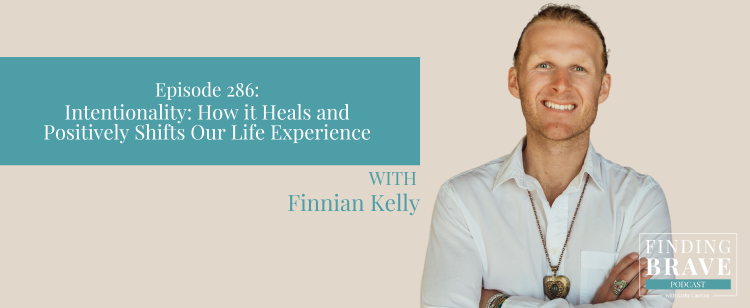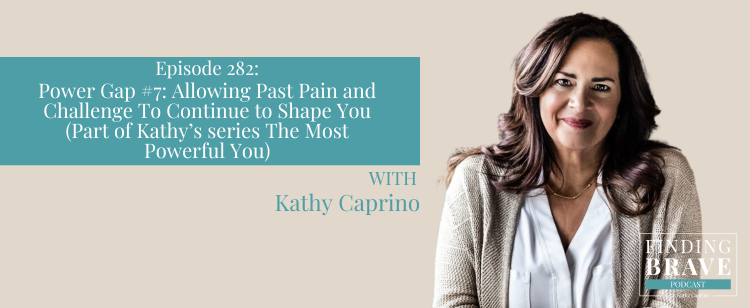Part of Kathy Caprino’s series “Becoming The Most Positive and Powerful Version of You”
If you’re like me, you want to be generous to others and give help and support in an abundant, loving way to those who need it. You also want to feel like you’re making a positive difference, and that you aren’t stingy with your heart, time and knowledge.
At the same time, we want to feel that our cup is full – of energy, joy, peace, balance and healthfulness. But if you’re working in a helping profession or support capacity, this balance can be very difficult to achieve at times.
I hear from hundreds of people each month (sometimes each week) who are deeply longing for assistance with their lives, work and careers, and if I’m not careful, I can find myself feeling frustrated and experiencing disappointment that, as just one person, I’m not enough. And at times, I can stretch myself too thin, and then feel resentful and drained.
As I shared in my podcast Finding Brave recently in the riveting interview with Finnian Kelly (don’t miss this!), I have also faced the struggle of wanting to be of help in particular settings yet feeling as if offering my support in these cases would lead to a huge clash with my own core values, ethics and morals.
For more on this, listen to this powerful interview with Finnian Kelly on Intentionality: How It Heals and Positivity Shifts Our Life Experience:
I have to admit honestly that I have experienced times when my heart wants to be generous to an individual or group that is asking for help, but in giving, I end up feeling taken advantage of in some way. When that situation comes up for me now, I stop right there in my tracks. This month, I was heading toward that experience but it prompted me to address and rethink this issue once more.
Years ago, after studying and training intensively to become a marriage and family therapist and in the first years of serving as a therapist and coach, I began to recognize just how potent our subconscious thoughts are, as well as our past experiences, and how they impact our reality today.
I also saw that without true awareness or a conscious, committed act of shaping and choosing our thoughts, our emotions can and will run wild.
I’ve found that thinking through these 3 eye-opening and potent questions below — and taking intentional, conscious actions based on our thoughts around these questions – helps us feel more generous and helpful but also more supported in our lives and work. These lines of inquiry help us give more generously and openly, while at the same time preserving and protecting our energy, time and well-being.
Perhaps these three questions and steps will help you too:
1. Ask yourself: What does “generous” and “giving” really mean to me?
It’s critical to think about how you personally define “generosity” and “giving” and to assess if your personal definition is actually working well for you in your life.
So, when you think of being “generous,” does it mean you are obligated to say “yes” to every request that comes to you? Does it mean that you have to catch every single ball that’s thrown at you?
Which requests make your heart sing to fulfill, and which requests make you cringe and sigh with exhaustion or frustration?
Do you understand clearly the types or behaviors of people whom you feel happy to help, versus those you may need to walk away from?
I’ve found that when I think a bit more deeply about how I want to be generous in the world and dimensionalize that more clearly with specifics that make sense in my life, the road becomes smoother. The path opens up more clearly about how I can give in ways that fill me up rather than deplete me.
And once I become clearer about the types and forms of help I want to give versus those I don’t, I begin to experience less of what is undesirable in my life.
2. How effective and healthy are your boundaries?
Is your inability to say “no” leading you to feel resentful when you do help?
Being generous doesn’t mean that you can’t say “no” to anyone. It also doesn’t mean that, if your work involves offering a helping service, you have to give away all of your time for free and you can’t ask for healthy payment for what you do. And it certainly doesn’t mean you have to tolerate mistreatment from people who don’t respect or value you.
If you are a service provider besieged with endless requests for free help, think about how you feel internally about asking for money and if you’re charging appropriately for the help you’re giving. If you can’t do that, or if you feel reluctant, ashamed or confused about when and how to ask for money, there’s a critical issue you have to work out.
Secondly, assess the quality and strength of your boundaries. Boundaries are the invisible barriers between you and your outside “systems” and they regulate the flow of input and information to and from you and these systems. Boundaries are generally shaped and formed during our childhood years, and in many cases, we weren’t allowed to assert healthy boundaries with our authority figures – it was not safe to do so. (Here are three key steps to building healthier boundaries.)
Below in my Finding Brave podcast is more about this issue, and a key “power and confidence gap” my research has uncovered that thousands of people experience — which is Allowing the Past To Continue to Shape and Define You. This is one of the 7 damaging power and confidence gaps (which I explore in my book The Most Powerful You) that negatively impact a staggering 98% of professional women and 90% of men today, keeping them from reaching their highest and happiest potential, goals and visions.
In addition, if you have developed a behavior I call “perfectionistic overfunctioning” – which compels us to do more than is healthy, appropriate and necessary and desperately try to get an A+ in all of it, then resentment and exhaustion will be a regular part of your life.
As a very first step, when someone asks you for help, stop, take three very deep breaths, and ask yourself, “What feels truly right here for me to do?”
If you need time to consider the request, take that time. Don’t rush into an answer.
In the end, go with what your gut and heart say is best for you.
In my case, if I’m unable to offer someone personalized help at the time of their request, I do my best to point them in another direction that can help. I’ve found that offering a wide range of high-quality free and low-cost programs, support, and resources is a wonderful way to support folks who may not be able to work with me directly. And I can refer them to another expert source or service provider who might have just the resources they need.
Opening just one door for another person is generosity in action. Help doesn’t have to take hours and hours, and drain you to the point of exhaustion and resentment.
The key is to look at what is underneath your resentment and conflict around offering help. If it’s a reluctance to charge enough money or be fairly compensated for the service you’re offering, address and heal that reluctance (here’s more about changing your wealth programming).
If it’s about not having any other way to help people than to charge them large fees, brainstorm some additional ways to be helpful. And finally, if it’s about your needing some help yourself, go out and ask for it today.
3. Are your negative perceptions about giving or getting help coloring everything?
Finally, take a look at your chronic pattern of thought when it comes to people asking for help. When they come to you, do you immediately go to the negative, judgmental place, thinking “Oh, no – not this again!” or “Can’t they just help themselves for once?,” or “How dare they keep asking for help when I just gave a ton of it.”
Perhaps as a child you were influenced by how your parents and authority figures thought about people who asked for help. Or maybe you were taught that asking for help means you’re weak and lazy. Examine how your negative thoughts about requests for assistance or support may be coloring your entire work-life experience.
Every time a request for help comes in, stop, breathe, and consciously, intentionally make a decision about how you want to feel about it and address it. Our thoughts shape what happens in our lives, what comes to us and how we experience our work and colleagues, so it’s vitally important to gain greater awareness and self-mastery of your thoughts, and choose to think and feel the way we want to.
I’ve found that when we engage in this simple process – stop, breathe, and choose — not only do we feel better in the process of giving, but we set up the conditions to receive more respect, appreciation and gratitude for what we’re doing in the world. We shed the resentment and the struggle, and that’s critical if we want more success and happiness.
If you’re angry and resentful about people reaching out to you, then you’ll push away the positive as well as the negative. Once we decide to consciously choose our reactions instead, and build healthier boundaries to communicate what we need and want, life changes for the better.
That, in turn, fills us up to be of greater help in ways that nourish and enliven us and others, all along the way.
Are you continually feeling beleaguered by requests from others? What can you do today to address that, both consciously and proactively?
To take empowering steps to build a more successful and rewarding career, join Kathy in her 6-session Career & Leadership Breakthrough program, read her book The Most Powerful You, and take her 8-part video companion course, The Most Powerful You. For free, hands-on career support, join Kathy in her monthly free career advice call series – Ask Coach Kathy.
To support the women in your organization to expand their leadership impact and influence, hire Kathy to deliver a transformative workshop or program for your next women’s leadership event.






